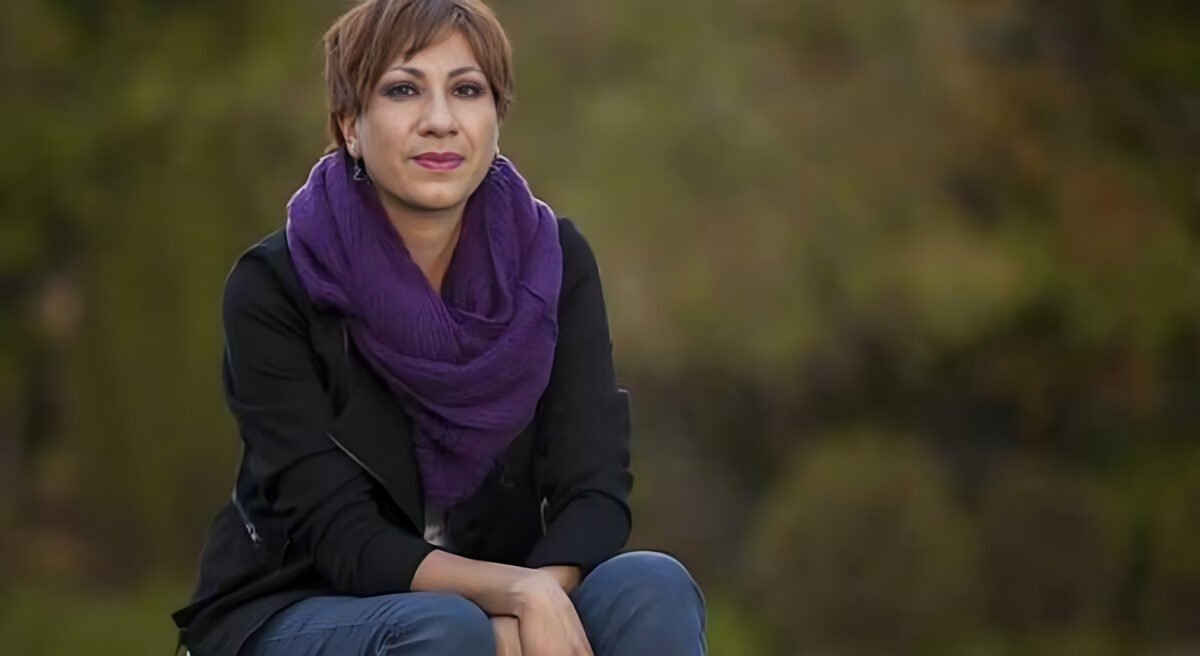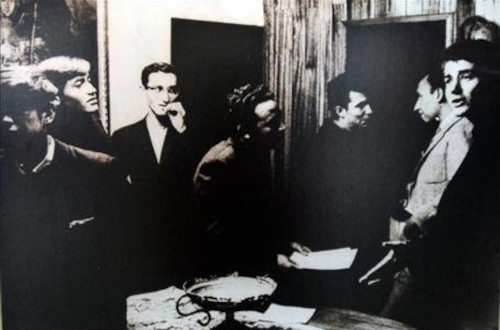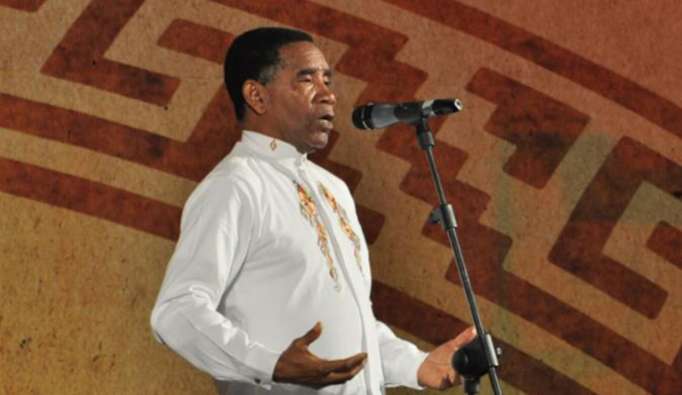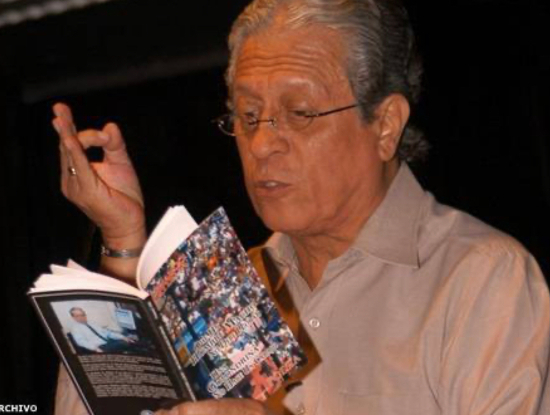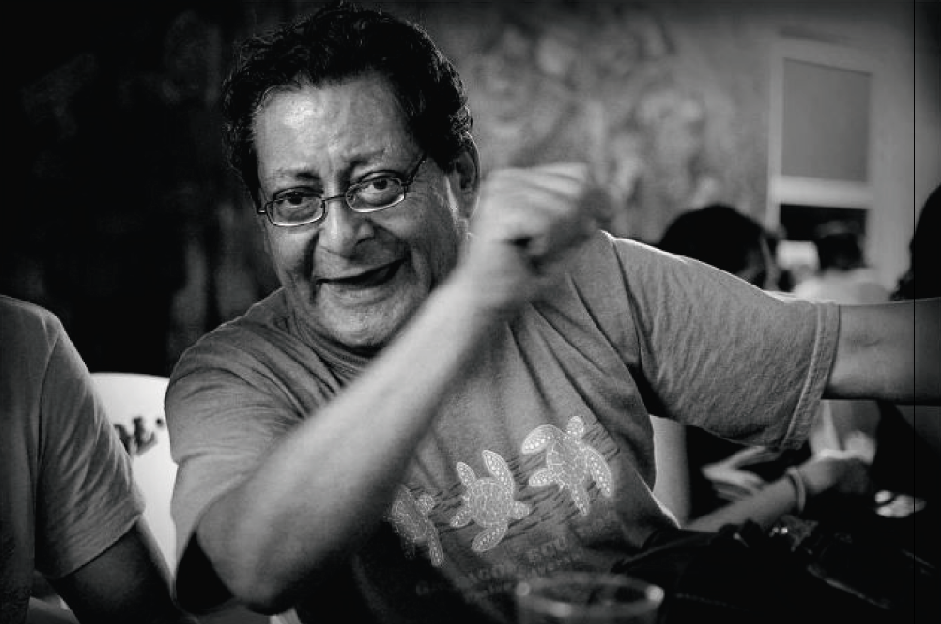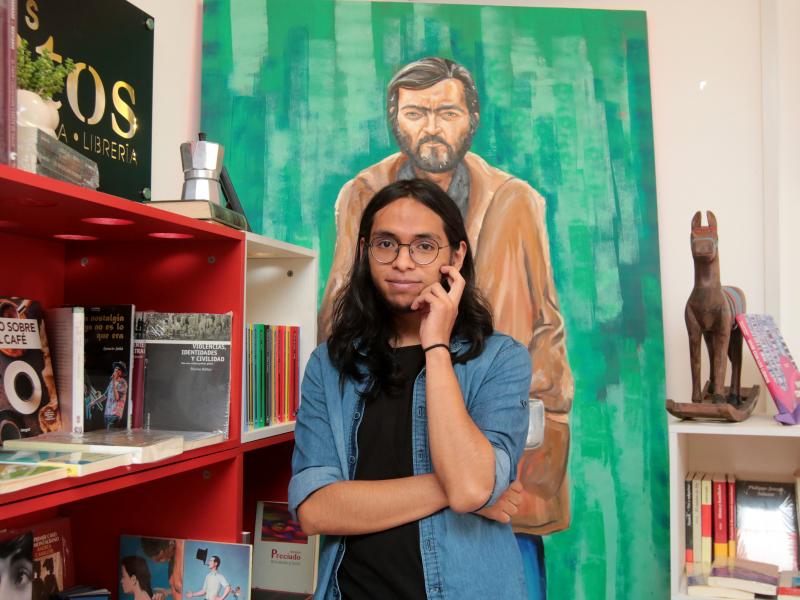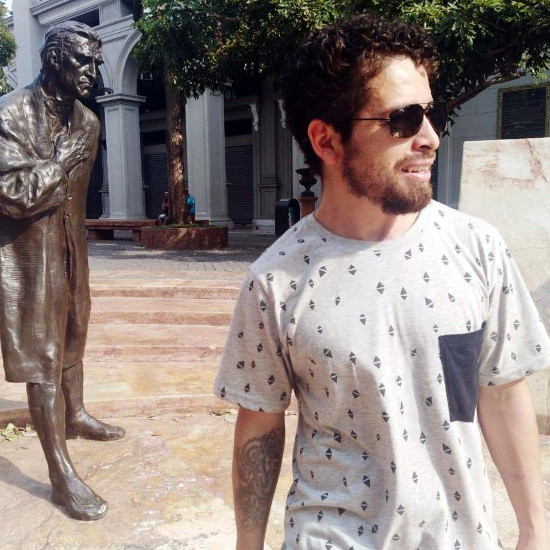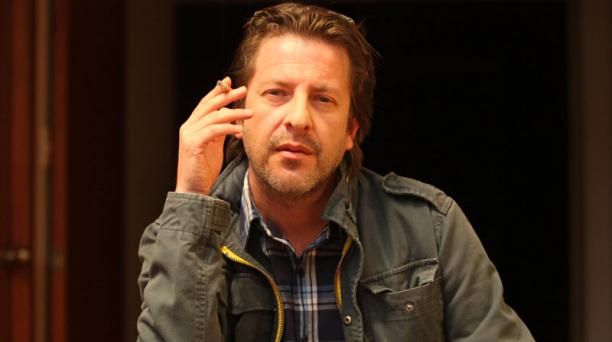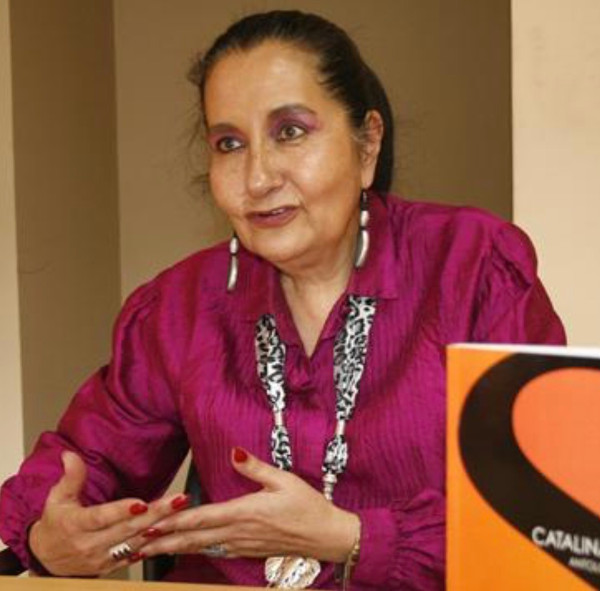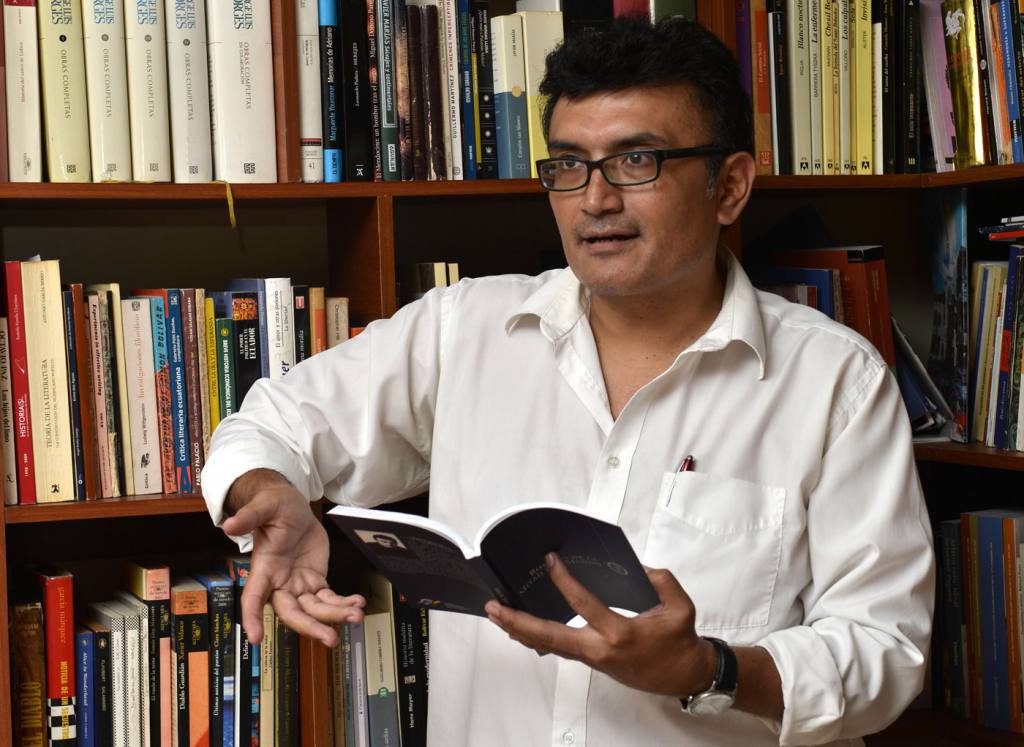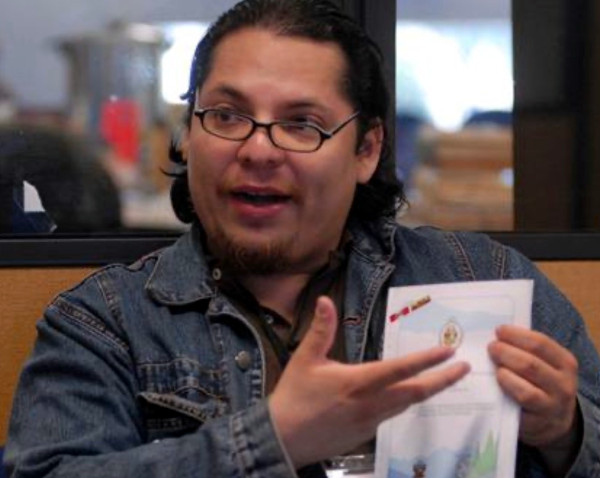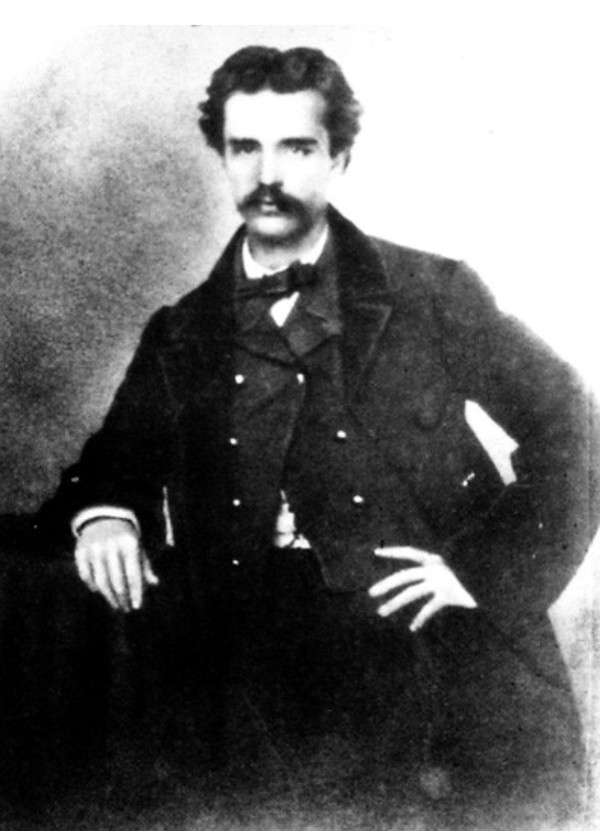Susana Freire García is a writer, historian and cultural promoter. She was born in 1977. She has a doctorate in Jurisprudence from the Central University of Ecuador but does not practice law. She is a researcher and historian of various aspects of the city of Quito, and is part of the Proyecto Quitología (English: Quitology Project), founded by Ulises Estrella. She has published 9 books with themes related to the city. Her books include Tzantzismo: tierno e insolente (2008), Un maestro en tiempos difíciles (2013), and Caperuso y el violinista (2010), which won the Alicia Yánez Cossío Children’s Literature Contest. She is also the co-author of Cae el telón (2012). Freire’s father is the writer and historian Edgar Freire Rubio (Ecuador, 1947).
Continue reading “Susana Freire García”Posts
Tzantzismo
Tzantzismo was a cultural movement from Ecuador’s 1960s. It was founded in Quito by Marco Muñoz and Ulises Estrella, while the rest of the members came together throughout the decade. They were influenced by other Ecuadorian intellectuals such as Jorge Enrique Adoum, César Dávila Andrade and Agustín Cueva. Tzantzismo was expressed primarily in poetry, and to a lesser extent in fiction and theater. This literary revolutionary movement emerged in response to an alleged degradation and gentrification of Ecuadorian literature. An important book on the movement’s history was written by author Susana Freire García.
Continue reading “Tzantzismo”Antonio Preciado
Antonio Preciado Bedoya is an Afro-Ecuadorian poet, university professor and diplomat. He was born in Esmeraldas on May 21, 1941. He was director of the Municipal Center of Culture of the city of Esmeraldas and President of the Esmeraldas chapter of the House of Ecuadorian Culture. For 23 years he was director of the Department of Culture of the Central Bank of Ecuador and rector of the University of Esmeraldas. He has been dubbed the “Poet of the Diaspora.” Together with Nelson Estupiñán Bass, Preciado is considered one of the greatest exponents of Esmeralda poetry. Siete veces la vida (1967) is widely regarded as his most famous collection of poems. Some of his work has been translated into English, French and Romanian.
Continue reading “Antonio Preciado”Édison Gabriel Paucar
Edison Gabriel Paucar Tufiño (Quito, July 29, 1988) is an Ecuadorian novelist, short story writer and journalist. In 2012, his book of short stories Malas compañías y otros caballos de Troya won the Joaquín Gallegos Lara Prize. Paucar’s first novel Mientras llega la lluvia (2017) was a finalist of the North Texas Book Festival Award and received honorable mention at the Darío Guevara Mayorga Prize. Since 2019 he has worked as a journalist at La Hora newspaper.
Continue reading “Édison Gabriel Paucar”Fernando Artieda
Fernando Artieda Miranda (Guayaquil, June 14, 1945 – April 15, 2010) was an Ecuadorian writer, poet and journalist. For 40 years he worked as a journalist for newspapers and magazines such as La Razón, Expreso, Meridiano and Hoy, as well as television media such as Ecuavisa and RTS. During the presidency of Abdalá Bucaram he was the secretary of communications.
Continue reading “Fernando Artieda”Fernando Nieto Cadena
Fernando Nieto Cadena (Quito, March 29, 1947 – Villahermosa, Mexico, March of 2017) was an Ecuadorian poet. In the 1970s he founded the literary group Sicoseo, which consisted of writers such as Fernando Artieda, Jorge Velasco Mackenzie, Jorge Martillo and Raúl Vallejo. In 1978 he moved to Mexico, returning to Ecuador on only two occasions. In 1989 he was awarded the Jorge Carrera Andrade Prize for his poetry book “Los des(en)tierros del caminante.”
Continue reading “Fernando Nieto Cadena”Leira Aráujo Nieto
Leira Aráujo Nieto (Guayaquil, 1990) is an Ecuadorian poet, writer, screen writer, actress, literature professor, and researcher. In 2015 she published her first poetry book, “Caníbales.” That same year her poetry collection, “Última noche en el país de los hoteles,” won the Ileana Espinel Poetry Prize. Her poems have been published in various national and international anthologies. She earned a PhD in Spanish Language and Literature from the University of Granada (Spain). She currently lives in Granada, Andalusia, Spain.
Continue reading “Leira Aráujo Nieto”Josué Negrete
Josué Negrete is a poet from Quito, Ecuador. In 2020 he won the Ileana Espinel Poetry Prize for his book Bajo las ramas que caen, caen, caen.
.
Edwin Augusto Paredes
Edwin Augusto Paredes Paredes is an Ecuadorian poet. He was born in Loja 1988. His poetry has appeared on blogs, online magazines and national and international anthologies. In 2019 the House of Ecuadorian Culture, Loja chapter, published his book Vacuidad. In 2018 his poetry book Génesis del polvo won the Ileana Espinel Cedeño National Poetry Prize.
Continue reading “Edwin Augusto Paredes”Cristóbal Zapata
Cristóbal Zapata is an Ecuadorian poet, editor, literary critic, and art curator. He was born in Cuenca in 1968. He is currently the executive director of the Municipal Biennial Foundation of Cuenca. He has published the poetry books Corona de cuerpos (1992), Te perderá la carne (1999), Baja noche (2000), No hay naves para Lesbos (2004), Jardín de arena (2009), La miel de la higuera (2012) and El habla del cuerpo (2015); and the book of short stories El pan y la carne (2007), which won the prestigious Joaquín Gallegos Lara National Literature Prize.
Continue reading “Cristóbal Zapata”Catalina Sojos
Catalina Sojos Mata (Cuenca, 1951) is a poet, writer, columnist, author of children’s literature, and a translator. In 1989, at the age of 37, she published her first poetry book: Hojas de poesía. She has been awarded the Gabriela Mistral National Poetry Prize, 1989, and the Jorge Carrera Andrade Prize, 1992. She is currently the director of the Manuel A. Landívar Museum in Cuenca, Ecuador.
Continue reading “Catalina Sojos”Solange Rodríguez
Solange Rodríguez Pappe (Guayaquil, Ecuador, 1976) is an Ecuadorian writer and professor known for her short fiction in the genres of fantasy, horror, and the strange. She has published several acclaimed collections, including Balas perdidas (2010), which won the Joaquín Gallegos Lara Award for Best Storybook of the Year. A longtime educator, Rodríguez has also been honored with the Matilde Hidalgo Prize for her academic career. Her works often explore themes of the fantastic and macabre, and have been translated into multiple languages, gaining international recognition.
Continue reading “Solange Rodríguez”Luís Carlos Mussó
Luís Carlos Mussó (Guayaquil, March 17, 1970) is an Ecuadorian poet and novelist. His first novel Oscurana (2012) won the Felicísimo Rojas Literary Prize and the Joaquín Gallegos Lara Prize. His latest novel Teoría del manglar (2018) is a work that follows the structure of the periodic table of elements and deals with the death of his father. Among his 8 poetry books, Tiniebla de esplendor (2006) and Mea Vulgatea (2014) have won the prestigious Jorge Carrera Andrade Award.
Continue reading “Luís Carlos Mussó”Miguel Antonio Chávez
Miguel Antonio Chávez Balladares (Guayaquil, June 7, 1979) is an Ecuadorian novelist and short story writer. His first short story book was Círculo vicioso para principiantes (2005). It was followed by the novel La maniobra de Heimlich (2010), the theater piece La kriptonita del Sinaí y otras piezas breves (2013), and the novel Conejo ciego en Surinam (2013). In 2007 he was a finalist for Radio France Internationale’s Juan Rulfo Prize with the story La puta madre patria. In 2011 he was named “one of the 25 best kept secrets in Latin American literature” by the Guadalajara International Book Fair.
Continue reading “Miguel Antonio Chávez”Julio Zaldumbide Gangotena
Julio Zaldumbide Gangotena (Quito, June 5, 1833 – Ibarra, July 31, 1887) was an Ecuadorian poet and politician, recognized as one of the leading figures of 19th-century Romanticism in Ecuador. He began his literary career in 1852 with La Estrella de la Tarde and became known for his contemplative, nature-focused poetry, blending melancholic and philosophical themes. He was also involved in politics, serving as a Deputy and later as Minister of Public Instruction, where he advocated for liberal ideals. He was a founding member of the Ecuadorian Academy of Language. His works were posthumously collected and remain integral to Ecuadorian literature.
Continue reading “Julio Zaldumbide Gangotena”
